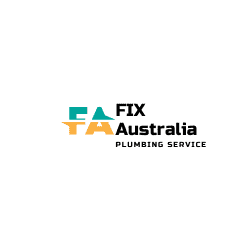Buying your first home is an exciting landmark, but choosing the right mortgage may be hard. With so many options available, it’s critical to decide which one best meets your requirements. This text will help you understand the mortgage options and to make better decisions.
What is a Mortgage?
A mortgage is a type of financing that is specifically created for the purchase of a home. You take funds from an investor and agree to repay the loan with welfare over a set time.
Key Factors to Consider for Buying a Home
Credit Score Needs
Score on credit has a big effect on the type of loan you can obtain. A big credit score can help you get better attraction rates and more investment or mortgage options.
Down Payment Options
The amount you put down upfront can influence your loan terms. Some loans need as little as 3% down, while others may require up to 20%.
Interest Rates and APR
Interest rates affect how much you will pay throughout the loan. The annual share rate (APR) covers interest and extra fees, so you may get a more clear view of the mortgage options or loan’s total cost.
Loan Terms
Loans often have periods of ten to thirty years. Shorter durations result in greater monthly payments but lower interest over time. Longer terms result in cheaper payments, but more interest.

Kinds of Mortgage Options
There are different kinds of mortgage options with pros and cons. The following will help you to understand better about the mortgages.
Government-Backed Mortgages
FHA Loans
FHA loans are popular among first-time buyers because of their low deposit payment needs. Lower credit scores make them more comfortable applying for a job.
| Pros | Cons |
| Lower down payments Flexible credit requirements | Loan insurance premiumsInsurance increase payments |
VA Loans
Service members, helping security people, along with partners of the National Guard and Reserves are all suitable.
| Pros | Cons |
| VA loans offer no deposit payment Private mortgage options & insurance | Require a VA funding fee. |
USDA Loans
These loans are for rural homebuyers and have income limits.
| Pros | Cons |
| No deposit payment Low mortgage insurance costs | Geographic Restrictions Income restrictions |
Traditional Mortgages
Limited-Rate Mortgages
The curiosity rate stays the same for the life of the loan.
| Pros | Cons |
| Predictable payments | Higher initial rates |
Flexible-Rate Mortgages (ARMs)
The claim rate starts low and changes over time based on market needs.
| Pros | Cons |
| Lower initial rates | Risk of higher payments if rates increase |
Interest-Only Mortgages
You pay only interest for a set period, then start paying the principal.
| Pros | Cons |
| Lower initial payments | Potential payment shock when principal payments begin. |
Specialized Mortgage Programs
Homebuyer Schemes
Many cities and states offer plans to help buyers with deposit payments and closing costs. These schedules may make homeownership more affordable.
Common-Income Buyer Options
Some investors provide customized programs for low-income homebuyers.

Likening Mortgage Lenders
Big Banks versus Local Banks
Big banks frequently provide a diverse selection of products but may lack personalized attention. Local banks may provide more personalized service but fewer borrowing possibilities.
Credit Unions
Credit unions frequently offer affordable rates and individual care to their members.
Online Investors
Online investors offer convenience and speed but may lack the personal touch of traditional investors.
Brokers
Brokers can help you get the best loan by comparing different investors; however, they may charge a fee for their assistance.
Mortgage Pre-Approval Method
Getting already approved tells sellers you’re serious and allows you to determine how much you can spend. Here are some steps to get pre-approved
- Check your credit score.
- Gather financial documents (income, assets, debts).
- Apply with a lender.
Documents Needed
Pay bills, tax returns, bank statements, and IDs are all common types of documentation.
Common Mistakes to Avoid
- Various financiers provide varying rates and conditions. Shop around to find the greatest deal.
- Determinate the costs for land charges, insurance, and care costs.
- Understand the terms and conditions of your loan, including rates, payment plans, and fines.
Conclusion
Getting the appropriate loan is crucial for house purchasers. Knowing your mortgage options and taking into account your financial situation will help you choose a loan that matches your needs.
